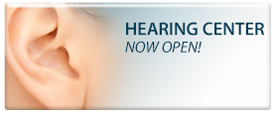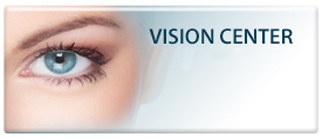Soft contact lenses are made of a light, flexible, moveable material. They’re popular because most patients find them really comfortable. Soft lenses have been available to patients in America since the early 1970s, making them a tried and true option for vision correction.
About 90% of Americans who wear contacts choose soft lenses to correct their vision.

Soft contacts are used to correct a variety of conditions, including nearsightedness (myopia), farsightedness (hyperopia), blurry sight (astigmatism) and age-related loss of close-up vision (presbyopia).
Types of Soft Contacts
As the science of contact lenses advances, optometrists have found ways to reduce the most common risks associated with wearing contacts. One of these improvements resulted in a new kind of soft lens made from silicone. Today, about 73% of soft contact wearers use silicone lenses, while the other 27% wear regular soft contacts.
- Regular hydrogel lenses—These are the traditional soft contacts that have been on the market since 1971. They work well for most patients and come with very few disadvantages; however, if you leave your contacts in longer than recommended or suffer from dry eyes, you may have problems with regular hydrogel lenses.
- Silicone hydrogel lenses—Silicone hydrogel lenses allow up to five times more oxygen to reach your eye’s cornea than regular hydrogel lenses. This improves eye health, reducing the risks of problems associated with an insufficient oxygen supply. Eyes that don’t get enough oxygen can develop a condition called hypoxia, which can result in infection, redness, swelling, blurry vision and discomfort.
Advantages of Soft Lenses
Soft contacts offer many benefits, which is why they’re the most popular type of contact available on the market. Soft lenses offer our patients:
- Unsurpassed comfort. Since soft contacts are so pliable, they’re usually comfortable right away. Soft lenses are universally considered the most pleasant contacts, and you probably won’t be able to feel them in your eyes throughout the day.
- Better corneal health. Soft contacts allow for plenty of oxygen to reach the eye, improving corneal health by allowing the veins and cells of the eye to breathe throughout the day. When your cornea doesn’t receive the oxygen it needs, it can swell and cloud or blur vision.
- Small chance of infection. Soft lenses reduce the risk of infections in the eye because they form to the shape of the cornea for a close fit. In addition, they’re often disposable, so bacteria won’t build up over time.
- Lower risk of dry eyes. Soft contacts rarely cause dry eye problems associated with other types of lenses. This is due to their breathability and the fact that they’re made partially of water.
- UV protection. Many of today’s brands of soft contacts come with UV protection, so you can rest assured your eyes won’t be damaged by the sun’s rays on cloudy days when you’re not wearing sunglasses.
- Disposable options. Some specialized soft contacts are designed to be worn for up to a year, but disposable options are a much more popular choice amongst our patients in Southaven. Daily, weekly and monthly disposables mean you can casually clean your lenses, not stress about lost contacts and reduce your risk of infection caused by old contacts.
- Extendable wear options. Extendable wear contacts have increased breathability, allowing more oxygen to reach your cornea. This means you can wear these contacts continually, even when sleeping, for up to a week or month (depending on the brand).
Disadvantages of Soft Contacts
Soft contacts have a few downsides to go with their many benefits. Since soft contacts are so flexible, they’re also easy to damage. These lenses can be torn, and even microscopic tears will make them uncomfortable and irritating when worn. In addition, soft contacts are highly permeable. While this is great for oxygen absorption, it also means the contacts soak up environmental pollutants like soap, sprays, soaps and lotion. If you decide to wear soft lenses, you should be careful to avoid polluted air and always wash your hands before handling your contacts to avoid potential damage or infection.


